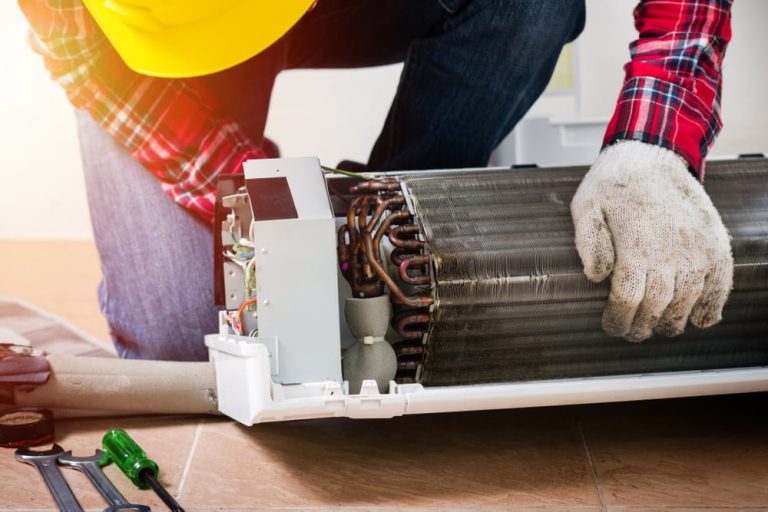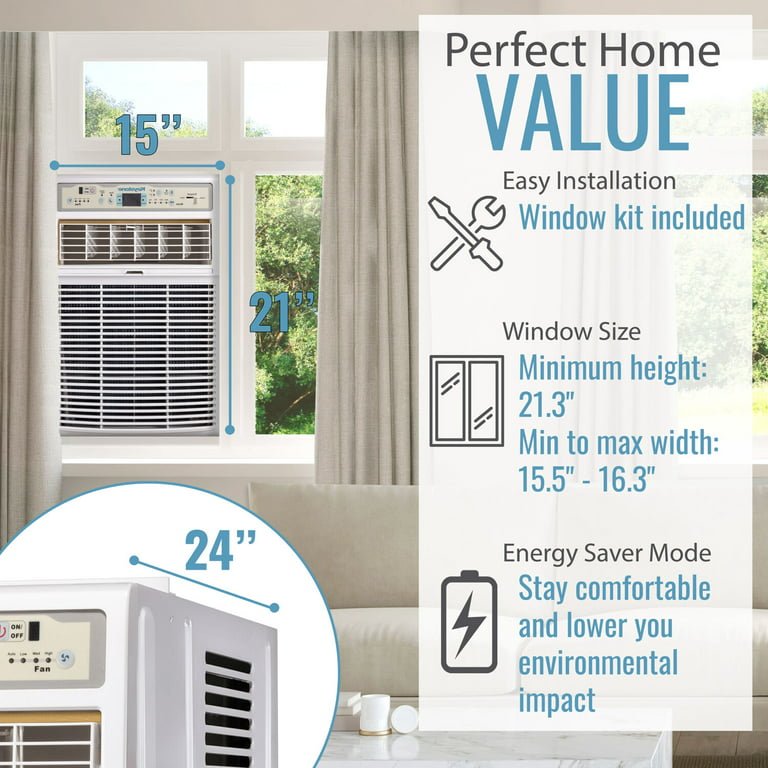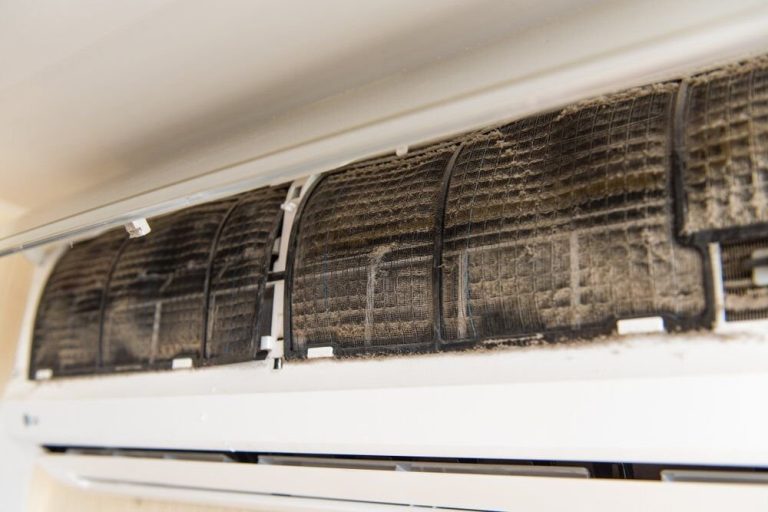Can You Wash Air Conditioner Filters? A Step-By-Step Guide
Yes, air conditioner filters can be washed. Washing air conditioner filters helps in maintaining airflow, cooling efficiency, and energy consumption. Regular cleaning of the filters improves indoor air quality and prolongs the lifespan of the cooling system.
Dirty air conditioner filters are a common culprit behind reduced airflow, decreased cooling efficiency, and increased energy consumption. Homeowners and renters with air conditioning units often face the challenge of maintaining these essential filters.
But here’s something surprising: did you know that you can actually wash air conditioner filters? Yes, it’s true! In this step-by-step guide, we will explore the process of cleaning your air conditioner filters, providing you with the knowledge and skills to keep your unit running smoothly and efficiently. For those concerned about home maintenance, energy efficiency, and cost savings, understanding how to clean air conditioner filters is vital.
By keeping these filters clean, you can ensure that your cooling system functions optimally, prolong its lifespan, and reduce the risk of potential damage. Furthermore, regular maintenance of air conditioner filters helps to improve indoor air quality, making your living environment cleaner and healthier. In this comprehensive guide, we will walk you through each step of the process, from identifying when your filters need cleaning to the proper technique for washing them.
We will also discuss the importance of regular filter maintenance and how it contributes to a more efficient and effective cooling system. So, if you’re ready to take control of your air conditioner’s performance and maximize its efficiency, join us as we delve into the world of air conditioner filter maintenance. Get ready to discover the simple steps that will keep your unit running smoothly and help you save on energy costs.
Why Cleaning Air Conditioner Filters is Important
Regularly cleaning air conditioner filters is essential for several reasons. Let’s explore why maintaining clean filters is so important:
Increase Airflow and Cooling Efficiency
Dirty filters can significantly reduce the airflow in your air conditioning unit. When the filters are clogged with dust, dirt, and other particles, the air struggles to pass through, resulting in decreased cooling efficiency. By cleaning your air conditioner filters, you can remove the debris that obstructs airflow, allowing the cooled air to circulate freely throughout your space.
Reduce Energy Consumption and Costs
Air conditioning units with dirty filters need to work harder to cool the room. This increased workload translates to higher energy consumption and elevated electricity bills. On the other hand, when you clean your filters regularly, your air conditioner can function more efficiently, requiring less energy to cool the space. By reducing your energy consumption, you not only save money but also contribute to a more sustainable and eco-friendly lifestyle.
Prolong the Lifespan of Your Air Conditioner
Proper maintenance, including regular filter cleaning, can significantly extend the lifespan of your air conditioning unit. When the filters are clogged, the system has to work harder to cool the air, putting excessive strain on the components. This increased strain can lead to premature wear and tear and may require costly repairs or even replacement. By cleaning your filters, you reduce the strain on the system, allowing it to operate smoothly and last longer.
Improve Indoor Air Quality
Dirty air conditioner filters can negatively impact indoor air quality. As air passes through the filters, they trap dust, pollen, pet dander, and other allergens. Over time, these trapped particles can accumulate, reducing the quality of the air you breathe. By regularly cleaning the filters, you remove these contaminants, improving the indoor air quality and creating a healthier living environment for you and your family.
When Should You Clean Your Air Conditioner Filters?
Now that you understand the importance of cleaning air conditioner filters, it’s essential to know when to clean them. The frequency of cleaning depends on various factors:
Frequency of Use
If you use your air conditioner frequently, especially during hot summer months, you should clean the filters more often. Higher usage leads to faster accumulation of dirt and debris, requiring more frequent cleaning. Aim to clean the filters at least once every month during heavy usage periods.
Environmental Factors
The environment in which your air conditioner operates can also impact the frequency of filter cleaning. If you live in an area with high levels of dust, pollution, or pollen, you may need to clean your filters more frequently. Similarly, if you have pets that shed fur, their dander can also contribute to filter clogging. It’s important to regularly inspect the filters and clean them when necessary.
Filter Type
The type of filter you have installed in your air conditioner also affects the cleaning frequency. Some filters are washable and reusable, while others are disposable and need to be replaced. Washable filters typically require cleaning every one to three months, depending on usage and environmental factors. Disposable filters, on the other hand, should be replaced according to the manufacturer’s recommendations.
How to Clean Air Conditioner Filters
Now that you know why cleaning air conditioner filters is important and when to clean them, let’s delve into the step-by-step process of cleaning your filters:
Step 1: Turn off the Air Conditioner
Before starting the cleaning process, make sure to turn off your air conditioner. This step is crucial to prevent any accidents or damage to the system during the cleaning process.
Step 2: Locate the Filters
Next, locate the air conditioner filters. These are usually situated behind a cover on the front of the unit or in the air ducts. Consult your air conditioner’s manual if you’re unsure about the filter’s location.
Step 3: Remove the Filters
Carefully remove the filters from the unit. Take note of how the filters are positioned, as you’ll need to place them back correctly after cleaning.
Step 4: Inspect the Filters
Examine the filters for dirt, dust, and debris. If the filters are only lightly soiled, you may be able to clean them by gently vacuuming or brushing off the dirt. For heavily soiled filters, washing is usually necessary.
Step 5: Wash the Filters
If your filters are washable, follow these steps to clean them:
- Fill a sink or bucket with warm water and a gentle detergent.
- Soak the filters in the soapy water for approximately 15 minutes to loosen the dirt.
- Gently scrub the filters with a soft brush or sponge to remove any remaining dirt.
- Rinse the filters thoroughly with clean water to remove all soap residue.
- Allow the filters to air dry completely before reinstalling them.
Step 6: Reinstall the Filters
Once the filters are dry, carefully place them back in their original position in the air conditioning unit. Ensure that the filters are correctly aligned and securely in place.
The Importance of Regular Filter Maintenance
Cleaning your air conditioner filters is just one aspect of regular filter maintenance. Here are a few reasons why maintaining filters should be a priority:
Optimal Airflow and Performance
Regular filter cleaning ensures optimal airflow, enabling your air conditioner to perform at its best. When the filters are clean, the system can cool the air efficiently, providing maximum comfort.
Energy Efficiency
Clean filters contribute to energy efficiency, helping your air conditioner consume less power. This not only reduces your environmental impact but also saves you money on energy bills.
Extended Lifespan
Regular maintenance, including filter cleaning, can prolong the lifespan of your air conditioning unit. By reducing strain on the system, you minimize the risk of breakdowns and extend its overall durability.
Improved Indoor Air Quality
Consistently clean filters lead to improved indoor air quality by removing dust, allergens, and other particles from the air. This is especially important for individuals with respiratory conditions or allergies.
Regularly cleaning air conditioner filters is vital for maintaining optimal cooling efficiency, reducing energy consumption, extending the lifespan of your unit, and improving indoor air quality. By following the step-by-step process outlined in this guide and adhering to a regular filter maintenance schedule, you can ensure that your air conditioning system operates at its best. So, take control of your air conditioner’s performance, save on energy costs, and breathe cleaner air by keeping those filters clean!
Air Conditioner Cleaning Indoor and Outdoor Unit Using Nu-Calgon Coil Cleaner
Can you wash air conditioner filters?
How often should I wash my air conditioner filters?
How do I wash air conditioner filters?
Can I use a vacuum cleaner to clean air conditioner filters?
What happens if I don’t wash my air conditioner filters?
Final Words: The Importance of Cleaning Air Conditioner Filters
In conclusion, cleaning air conditioner filters is crucial for several reasons. Firstly, it helps increase airflow and cooling efficiency by removing debris that obstructs the air passage.
This ensures that the cooled air can circulate freely throughout your space. Secondly, cleaning the filters regularly reduces energy consumption and costs as a clean filter allows the air conditioner to function more efficiently, requiring less energy to cool the room.
This not only saves money but also promotes a more sustainable and eco-friendly lifestyle. Thirdly, proper maintenance and regular filter cleaning can significantly prolong the lifespan of your air conditioning unit. When the filters are clogged, the system has to work harder to cool the air, putting excessive strain on the components.
This increased strain can lead to premature wear and tear and may require costly repairs or replacement. By regularly cleaning the filters, you reduce the strain on the system, allowing it to operate smoothly and last longer. Lastly, cleaning the air conditioner filters improves indoor air quality by removing dust, pollen, pet dander, and other allergens that can accumulate over time.






